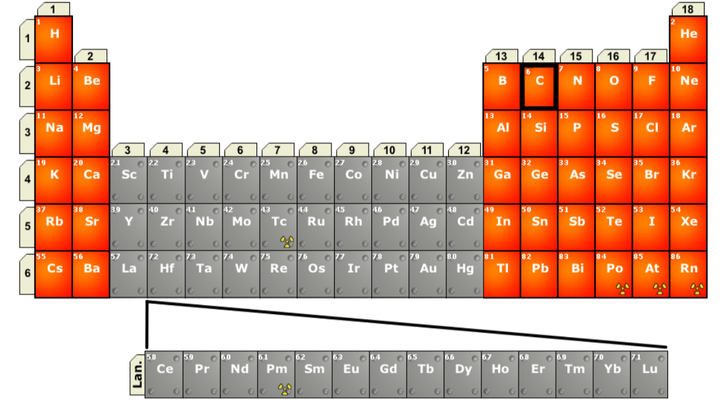I'm Tim Worstall here to work on beating China at the rare earths game. Not to beat them entirely, not on £1 million, but to take a big bite out of one specific problem. Or at least attempt to.
What we need to do is test "vacuum distillation of lanthanide halides" which is something that will make sense to about three people. I have proposed this to the US DARPA and was told "interesting idea" but as a foreigner didn't get any money. The UK org which supposedly does this stuff doesn't have a phone number and doesn't answer emails. So, perhaps we can do this ourselves?
This is not an attempt to set up a business. This is to do something in that little gap between theoretical science and the straight engineering of building a factory. Testing that theory really does work the way it says it should. We would not patent the results, we would publish them and anyone who wants to use them could do so. If the results are what theory predicts lots of people would want to for it would make rare earths cheaper, increase the sources - the ores, the mines - we could get rare earths from and generally have a better industry. It would make recycling rare earths very much easier and cheaper. It would also break the major stranglehold China has on the rare earths industry globally.
Which is a lot for only £1 million but that is if it all works.
The problem, put simply, is that separating the rare earths one from another is a right bugger. Mining an ore, making a rare earth concentrate, easy enough. But separating the lanthanum from the neodymium from the terbium and the others you've not heard of, that's difficult. It costs about $15 per kg of material and that's before the £500 million to $1 billion capital cost of the factory to do it in. There aren't many of these factories - obviously - and near all of them are in China. That's the real chokehold they've got.
You can't use chemistry to find a new and interesting way around this problem - you've got to use some aspect of physics. Which is what distillation is. Just as we distil things into the interesting alcohol (ethanol) and the not-interesting that makes you blind (methanol) so it's possible to distil the gases of metal halides (so, copper chloride say, or iron iodide). This is done at large scale in the titanium industry - it's how the white in white paint is made. Millions of tonnes a year at about $50cents a kg.
The thing to test is whether this works with the lanthanides, the rare earths. There's some Japanese work from the 00s that says yes. We've done some work in Sweden which says in theory, yes. There is no evidence, anywhere, that it doesn't. No one has actually tried it properly.
So, in simple terms, take the method of the titanium industry and try it on rare earths. We know the technology works on some metals, does it work on these? Theory says yes it should - but does it really? Research, as far as it is possible to go without actually loading up a machine and doing it, says yes, it does. But does it really? That's the thing that has to be done.
That has to be done by someone, somewhere, so why not us? One possible money source is government of course but that's just from all of you with the bureaucrats taking a slice off the top. So, why not directly? And, to say again, this is not to set up a business. This is to conduct that scientific/engineering test of whether it works or not then publish the results for anyone who wants to use them. If it does work we might well want to try too but we'd be in the same position as anyone else there - we would not own these results, they'd be free for anyone to use. In the technical terms of economics the results would be a "public good".
The equipment and the experiments should cost around £250,000. That's a slightly old number, a couple of years, but was prepared by an expert in the vacuum distillation of titanium etc. Environmental permission should cost about £250,000 and planning permission another £250,000. Yes, I know that's insane but that's modern law for you. There's also £250,000 as a contingency reserve - the first law of business is that no business plan survives first contact with the market. Or, in simpler terms 25% just in case the other numbers aren't quite right.
I would take the average UK wage - £38,000 a year - for my part in doing this. If we get overfunded then we'd look for other interesting projects to work on on that same public good basis and my salary would change.
As to me. I'm Tim Worstall. Easy enough to find journalism from me over the past 20 years - Guardian, Telegraph, Forbes, many places. But before that career switch I was the major global wholesaler of one of the rare earths - scandium. I used to do about 50% of the world's business. I've supplied the US Navy, Smith and Wesson, Airbus, the lighting industry and so on. Really, half what the world used for well over a decade. It's a very small industry but that was me.
This distillation of halides is an idea I've been nursing for a couple of decades now. This is the time to try it out.
A million is of course a vast amount of money. It's also trivia to solve this particular problem. How do we lift China's foot off the windpipe of the rare earths economy? The crucial chokepoint they control is the separation technology. So, we should be working to bypass that control they have - by investigating new methods.
Vacuum distillation of metal halides works and is cheap. Vacuum distillation of lanthanide halides should work and should be cheap. Someone has to go check this. If not now, when?
Organizer

Tim Worstall
Organizer
Montes Velhos, 2
